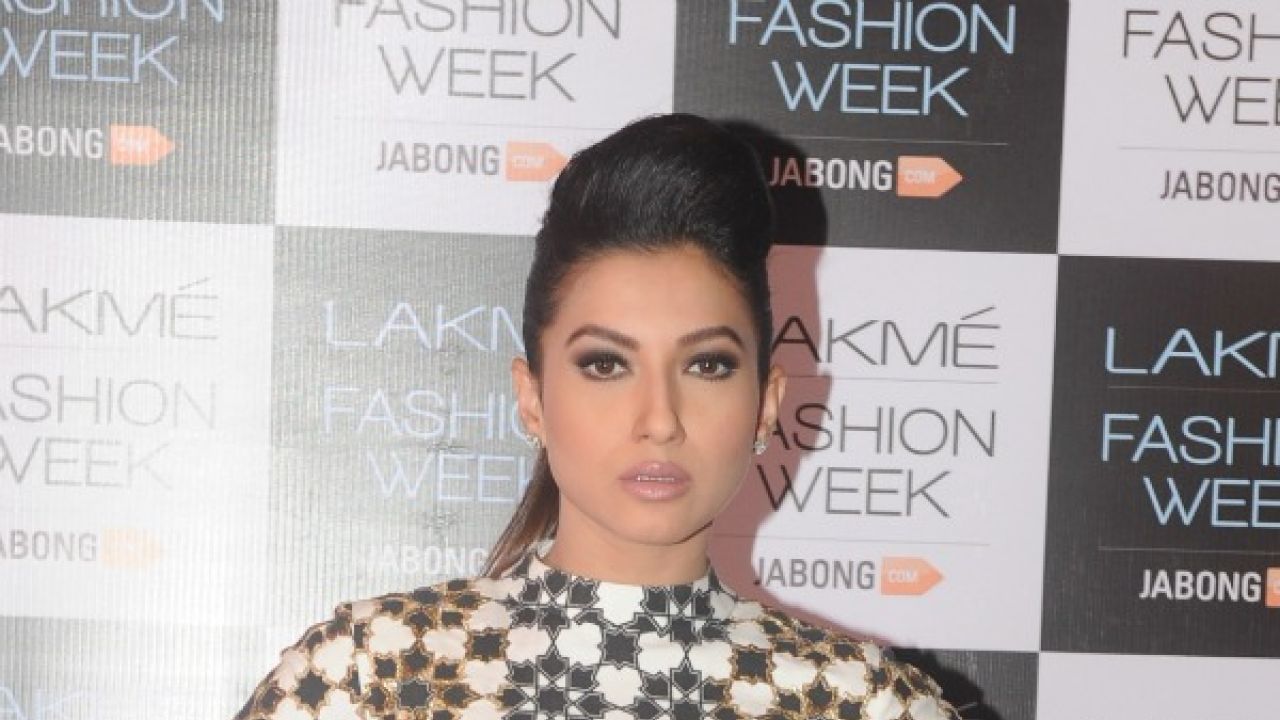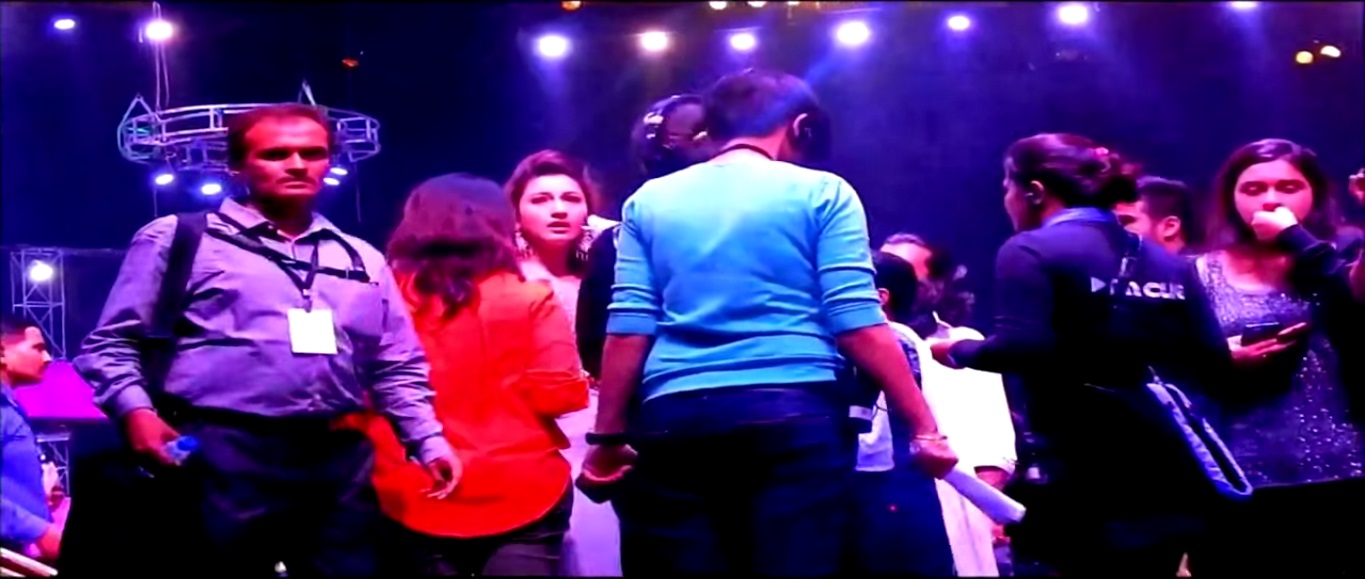
On Sunday, model-turned-actress and Bigg Boss 7 winner Gauahar Khan was slapped by an audience member on a singing reality show known as India's Raw Star.
The man, identified as Akil Malik, justified his attack on Gauahar saying that being a Muslim woman, she should have dressed decently. Furthermore, he claimed her 'skimpy' dress provoked him.
The incident caused outrage on social media and in Bollywood, but the young man stuck to his comments.
The media picked up the story and ran it with purpose. On Monday, there was another story that made breaking news - a Mumbai law college imposed strict dress codes on women, even going so far as to indicate the permissible length of sleeves, tops and the style of footwear (all covering).
Watch: Gauahar Khan reacts after being slapped by man while shooting for 'India's Raw Star'
But these kinds of incidents have become common in Indian society over the last decade or two. In 2009, members of a right-wing fringe outfit the Ram Sene attacked women inside a pub in Mangalore, claiming that women drinking was 'against Indian culture'. Bangalore University and Anna University in Chennai have been known to impose draconian dress codes on women, with the stated purpose of preventing rape. In Aligarh Muslim University, women were banned from entering the library. In Haryana, an outfit called the Hindu Mahasabha has demanded a ban on women wearing jeans in educational institutions, prohibition of mobile phones and a ban on live-in relationships.
Recently, the Akhil Bharatiya Vidyarthi Parishad (ABVP), the student wing of the BJP claimed that 'these days women are being given wrong ideas of freedom'. There have been numerous instances of politicians making extremely derogatory statements against women over the years. Rape in particular always becomes a reason for the so-called moral guardians of society to blame women for 'skimpy clothes', 'loose behaviour' and so on. Even 'honour' killings sometimes get justified in this way.
Unfortunately, though such incidences get considerable media coverage, there is often a tendency to single out a particular case of moral policing against women, debate it hotly and blame politicians in particular. Then we move on until something similar happens again.

A crew members rush to Gauahar Khan seconds after she was slapped unawares
In addressing such incidents separately, we miss the larger picture. The issue has never been about a political party or ideology. It has also never been about traditional versus modern values. At the heart of moral policing against women is the latent belief that men need to have and retain control over women's bodies.
Control over sex and sexuality has always been the key to attaining a position of social privilege. It is the reason marital rape is still not considered rape in India. It is the reason issues of sex are taboo and virginity still remains an important attribute for a woman who wants to get married. It is also the reason that a woman who has experienced rape becomes a pariah in Indian society.
Behind all this is the implicit assumption that men have the right to control women's lives from the cradle to the tomb. The core of life being sex and sexuality, this is sought to be reined in. It is worth noting that women are often talked of in relation to men - as someone's wife, mother, daughter - rather than as independent human beings. Though many of us may not realise it, this relegates women to the level of sub-humans and commodifies them.
Culture or religion is used (or misused) as a reason to justify such discrimination. When somebody tells you something along the lines of 'society does not accept this kind of behaviour from women' or that 'social fabric will be destroyed if women begin to behave in such a way', what they are really exposing is the overwhelming role of men in defining and shaping the social order. Then, to enforce these discriminatory social norms, customs and traditions are created (or modified) over a long period of time. These ultimately become part of a society's culture and habit. Retrograde ideas which evolve from such outmoded customs then dominate society. Their inception begins with birth and ends after death. In short, dress codes and violence are merely a materialistic manifestation of a basic problem with the social order. It is practical implementation of ideals already deeply ingrained in society.
In the zeal to control women's lives, our beliefs and customs also end up stereotyping the image of males in society. When society expects women to be submissive and conformist, it also expects men to be aggressive, unemotional, physically and mentally strong and even violent in nature. This further translates into stereotypes about mannerisms, habits and hobbies, likes and dislikes, physical desire and even occupations. Consequently, such ideas marginalise people of the third gender, people with homosexual tendencies and even people with disabilities. Eventually, a highly unequal and unjust society that stifles individual will and creativity is born and sustained.
Also Read: Forget banning girls from Aligarh Muslim University library, here are 7 places that should ban men
India is becoming a hotbed of moral policing against women because there is a massive societal backlash, born of a perception that the injustices and inequalities of society are slowly being resolved through education and (crucially) influx of Western ideals. It is difficult for those who occupy a position of societal privilege owing to their gender to accept that this privilege is slowly being lost. It is also difficult for women who have been indoctrinated with discriminatory ideals and brought up as second class citizens, to face up to the idea of equal freedom and responsibility.
Liberal education that attempts to evolve thinkers instead of learners is one way to undo the historical misogyny that has haunted Indian society for centuries. Secondly, popular culture, the media, movies and literature must play an important role in presenting a positive image of humanity to those of an impressionable age. Uprooting and eliminating debilitating gender prejudices will take several generations, but it is a critical goal for Indian society.
Also Read: The Deepika Padukone controversy: Will Bollywood walk the talk?